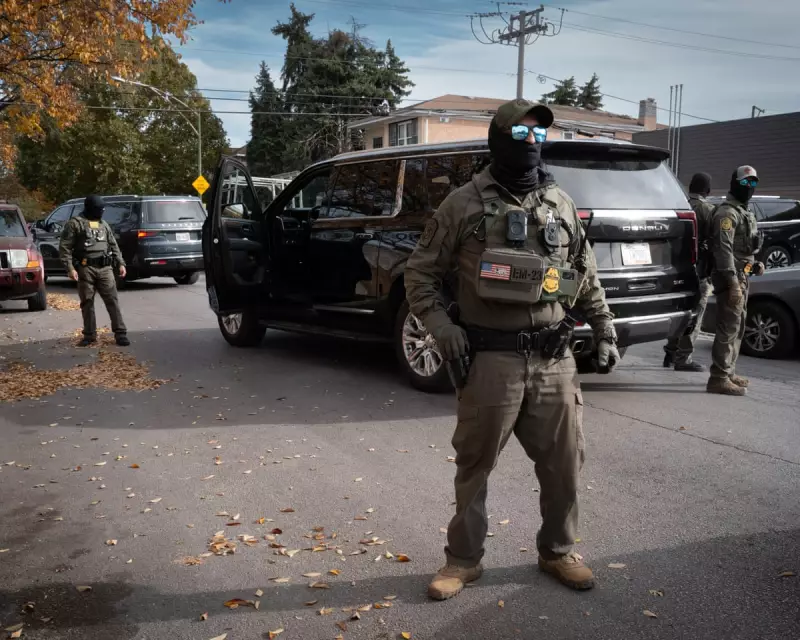
Newly released federal court documents have exposed a significant discrepancy between the Trump administration's rhetoric and reality in its immigration enforcement operations in Chicago.
Operation Midway Blitz: The Data Versus The Narrative
According to federal data submitted to court by the Department of Homeland Security, more than 97% of immigrants arrested during "Operation Midway Blitz" in Chicago had no criminal convictions. The operation, which began in September, resulted in 614 arrests across the Brighton Park neighbourhood.
The statistics sharply contradict the administration's portrayal of immigration sweeps as targeting dangerous criminals. President Trump himself has repeatedly described such operations as focusing on the "worst of the worst" offenders.
Breaking Down the Arrest Figures
Of the 614 individuals detained in the Chicago operation, court records reveal that only 16 had significant criminal histories. The breakdown of those with criminal records includes:
- Ten detainees convicted of or facing charges for assault, battery or domestic violence
- One individual convicted of enticement of a minor and kidnapping
- One person labeled as a "foreign criminal"
- Two individuals with drunk-driving convictions
The overwhelming majority of those arrested - approximately 598 individuals - had neither criminal convictions nor pending charges against them at the time of their detention.
Risk Assessment and Legal Challenges
Federal authorities classified three dozen of the arrested migrants as presenting a "high" risk to public safety, though the data showed the vast majority were considered low risks. Almost all detainees were described as flight risks in the court documents.
The data emerged as part of the Castañon Nava v Department of Homeland Security case, where plaintiffs accuse DHS of violating a 2022 consent decree that limits warrantless arrests of migrants by federal immigration agents.
In a separate court submission, DHS described an additional 39 detainees as security threats without providing specific reasons for this classification, according to the National Immigrant Justice Center, which represents plaintiffs in the case.
A National Pattern Emerges
This gap between administration claims and actual criminal histories of detained migrants has become a recurring theme since President Trump returned to office. On his inauguration day, Trump signed an executive order eliminating policies that prioritised arresting and removing unauthorised migrants with serious criminal records.
A similar pattern was documented earlier this year during high-profile immigration sweeps in southern California. Records obtained by the Deportation Data Project at UC Berkeley School of Law showed that more than two-thirds of 722 migrants arrested in the Los Angeles area from June 1-10 had no criminal convictions, while 58% had never faced criminal charges.
The Guardian's data tracker indicates that 64% of migrants arrested by ICE nationally have either criminal convictions or pending charges - a significant shift from the final days of the Biden administration, when those without criminal records or pending charges accounted for just 6% of detainees.
Currently, individuals without convictions or pending charges constitute the single largest group in ICE custody, representing approximately 36% of all detainees.
DHS assistant secretary Tricia McLaughlin dismissed the Chicago data as "horrendously misleading" in a statement to The Guardian, maintaining the administration's position that immigration enforcement focuses on criminals.





